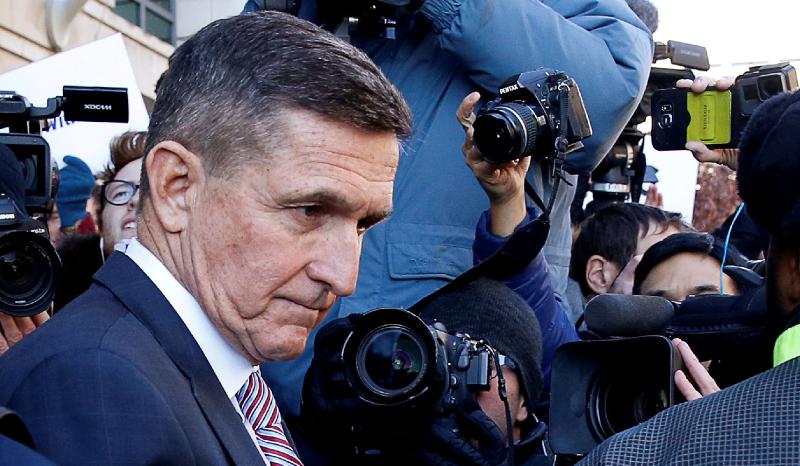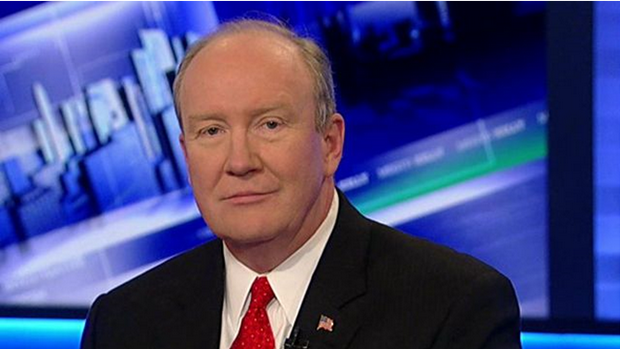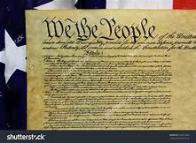Michael Flynn & Justice Department: New Revelations in Case
By: Andrew C. McCarthy (National Review)



Former national security adviser Michael Flynn departs after his sentencing was delayed at U.S. District Court in Washington, D.C., December 18, 2018. (Joshua Roberts/Reuters) New documents suggest that Flynn 'was set up by corrupt agents' who threatened Flynn's son and made a secret deal with Flynn's attorneys.
'Why was the FBI investigating General Flynn?" That is a question I posed more than three years ago, in the days immediately after President Trump fired Michael Flynn — fleetingly, his first national-security adviser — in February 2017.
There was never a good answer to that question. That has always been a big problem for the current and former government officials whose actions in the blatantly politicized probes of the Trump campaign and its surrogates are currently under investigation by the Justice Department.
The question and the lack of a satisfactory answer are likewise at the root of stunning disclosures the Justice Department has just made to Flynn and his legal team.
Even when the government is doing the right thing, you can rest assured that Friday-afternoon information dumps (here, in the middle of a pandemic) are apt to contain news humiliating for the officials involved. So it was that last Friday night, the DOJ provided some so-called Brady material — i.e., exculpatory information that prosecutors are required by law to reveal to defendants they have charged with crimes — that Flynn's lead lawyer, Sidney Powell, has been demanding for months.
The information is still not public because it has been produced under a court order that keeps it under wraps, at least for now. But we can glean its outlines from a motion Ms. Powell filed immediately afterward in federal court in the District of Columbia. That's where she has been trying to convince Judge Emmet Sullivan to vacate Flynn's guilty plea and throw out the case based on alleged prosecutorial misconduct.
In the motion, Powell argues that the new information "proves Mr. Flynn's allegations of having been deliberately set up and framed by corrupt agents." She elaborates that the evidence that has finally been communicated to her
defeats any argument that the interview of Mr. Flynn on January 24, 2017, was material to any "investigation." The government has deliberately suppressed this evidence from the inception of this prosecution — knowing there was no crime by Mr. Flynn.
This goes to the point I've been pressing for years. There was no good-faith basis for an investigation of General Flynn . Under federal law, a false statement made to investigators is not actionable unless it is material . That means it must be pertinent to a matter that is properly under investigation. If the FBI did not have a legitimate investigative basis to interview Flynn, then that fact should have been disclosed as exculpatory information. It would have enabled his counsel to argue that any inaccurate statements he made were immaterial.
And that is far from the end of the matter.
As I've noted several times over the years, it has long been speculated that Flynn — though he did not believe he was guilty (and though the agents who interviewed him also did not believe he had intentionally misled them) — nevertheless pled guilty to false-statements charges because prosecutors from Special Counsel Robert Mueller's staff threatened him. Specifically, Flynn is said to have been warned that, if he refused to plead guilty, prosecutors would charge his son with a felony for failing to register with the Justice Department as a foreign agent. Such a so-called FARA violation (Foreign Agent Registration Act) is a crime that the DOJ almost never charged before the Mueller investigation, and it had dubious application to Flynn's son (who worked for Flynn's private-intelligence firm).
Well, Powell now contends that the new disclosures demonstrate that Mueller's prosecutors — she specifically cites Brandon Van Grack, who now runs Justice's FARA unit — did indeed promise Flynn that they would not charge his son if Flynn pled guilty. Worse, Powell avers that the prosecutors coerced Flynn and his counsel to keep this agreement secret. That is, this was to be a side deal that would not be written into the plea agreement and therefore would be kept from the court and the public.
Under federal law, all understandings that are relevant to a guilty plea must be disclosed to the judge . It would be not merely a serious ethical breach for government lawyers to fail to reveal such an arrangement. It would be a fraud on the court.
Of course, if a deal of the kind Powell is alleging had been disclosed, it would have illustrated the hardball that Mueller and his band of activist Democratic prosecutors were playing in an effort to nail President Trump. You're stunned to hear it, I'm sure.
There is going to be more on this. But a few more points should be made.
First, Sidney Powell had nothing to do with negotiating Flynn's guilty plea. To the contrary, she has been intrepid in investigating whether that plea was induced by prosecutorial misconduct. Flynn was originally represented by the very politically connected Washington firm of Covington & Burling. The firm's performance has already raised questions: They counseled Flynn on his FARA submissions, filing the FARA documents with the DOJ on his behalf; and they also represented him in his plea negotiations with Mueller's staff, which involved the integrity of these same FARA filings. That's a conflict of interest, and though the DOJ maintains that Flynn waived it, there is a question about whether such a conflict is waivable. Now comes the claim about a side deal not to prosecute Flynn's son. Let's stress that nothing has been proved at this point. But if Covington's lawyers colluded with government lawyers to make such a deal and conceal it from the court, that would raise very serious legal and ethical issues.
Second, the Flynn case is so patently disturbing that, weeks back, Attorney General Bill Barr assigned a very well-regarded prosecutor, St. Louis's U.S. attorney Jeff Jensen, to review it. The new disclosures are a result of Jensen's investigation. The Justice Department's disclosure to Ms. Powell indicates that more revelations are forthcoming.
Third, Powell's litigation on Flynn's behalf has always been uphill — which is why she is to be lauded for pursuing it. The remedy for being bullied into a guilty plea is for the defendant to be permitted to withdraw his plea and fight the charges. In Flynn's case, that has been an illusory remedy. He must fear that if he voided his agreement and withdrew his plea, prosecutors would be free to charge his son (and to add any new charges they could conjure up against Flynn himself). Confronted by this dilemma, Powell has pressed a daring strategy: try to so enrage the court about the misconduct that the judge would throw the case out rather than merely vacate the guilty plea and leave Flynn fighting the case from square one.
I still do not think, as a matter of law, that a court is going to find that the conduct requires dismissing the indictment — tempted as I might be, if I were the judge. More likely, a good judge would vacate the plea and put the ball in the Justice Department's court. Does the DOJ really think this case could be prosecuted — or, more to the point, that it should be prosecuted? That it should have been charged in the first place?

ANDREW C. MCCARTHY is a senior fellow at National Review Institute, an NR contributing editor, and author of BALL OF COLLUSION: THE PLOT TO RIG AN ELECTION AND DESTROY A PRESIDENCY .
Comments
As I've said on other occasions, Flynn should never have been prosecuted, and President Trump should long ago have pardoned him. But that's water under the bridge. For General Flynn, it would probably be best if the court vacated the plea and the Justice Department then dropped the charges.
Finally, in Ball of Collusion , I included a section about the serial outrages in the baseless investigation of General Flynn, a decorated combat commander. We are going to run it at National Review. I concluded by opining that what happened to Flynn was deeply wrong but not illegal. The new disclosures may call for revisiting the latter conclusion.



